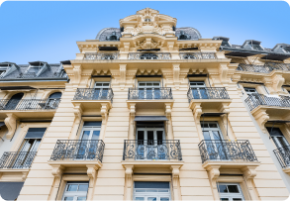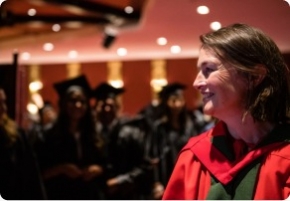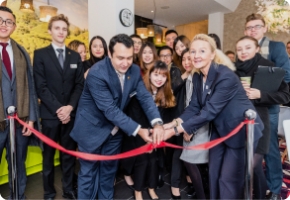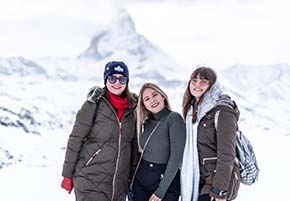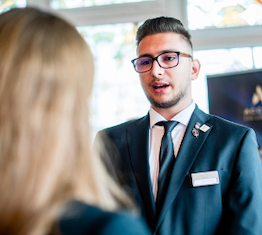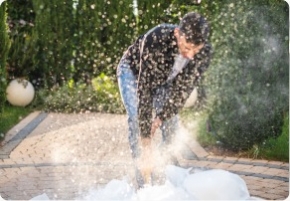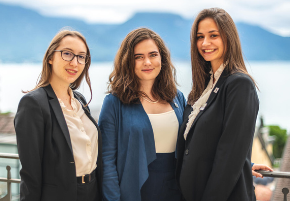- About
- Programs
- Campus Life
- Career Services
- Admissions
- News & Events
- Alumni
Lost and Found in Botswana
Lost and Found in Botswana
Being lost in Botswana is the best thing to happen to me in my life.
Hotel Institute Montreux Alumna Alina Redka has been working at Wilderness Safaris as a Lodge Manager for 3 years.
I still remember sitting on my balcony in Montreux overlooking Lake Geneva, while I wrote my motivation letter for Wilderness Safaris in Botswana. The excitement of new opportunities overtook my fear of the unknown with my sights squarely focused on adventure. And before I knew it, I was on a flight from Geneva to Johannesburg, South Africa then connecting to Maun, Botswana. The place where it all started…
Upon my first day of arrival I have memories of new faces, unusual humor, lots of different shades of Khaki and a whole lot of coffee to keep me awake after such a long journey.
“I had no idea than, but all those people became the source of my life for the last 3 years. Humble, Energetic, Positive, Loving and Honest- they met me with open hearts and minds, welcoming me into their world, which I now proudly call home.”
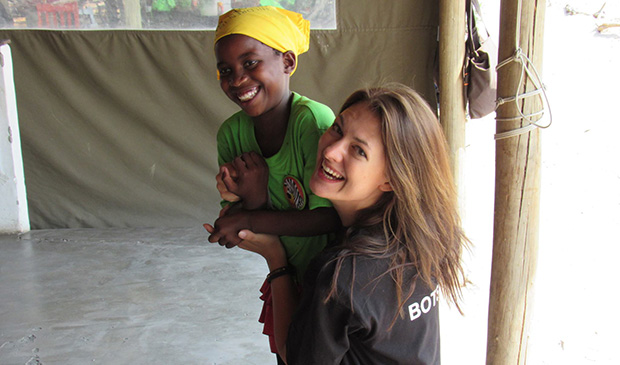
“Ga o le teng le nna keteng A o ka etsa ntlho e?” These are the lyrics of a song that is often sung by school kids that means: “If you are here, I am also here. Can you do it like me?”
From Russia to Switzerland to Botswana – talk about culture shock! What was your experience adjusting to the change?
Cultural differences can offer the greatest opportunities for learning but are also a common source of difficulties and stress. My experience was definitely challenging in the beginning as it is not an easy task to open your mind to the idea that everything you knew prior to this experience needs to be amended and adjusted to fit the African mentality. In Botswana, everything works on African time. The Swiss punctuality you learned in school should be left in the suitcase you travelled with. In that same suitcase you can pack away your idea of perfection and your anger as this will only distract you.
After 3 years in Botswana how have you adjusted?
After 3 years living and working in Botswana, I can understand the local language of Setswana, I love dancing & singing along with locals and am proudly referred to as Motswana by my local colleagues.
“You are white, but you have African heart!” - They tell me every time I am mumbling one of my favorite Setswana songs while walking around the camp.”
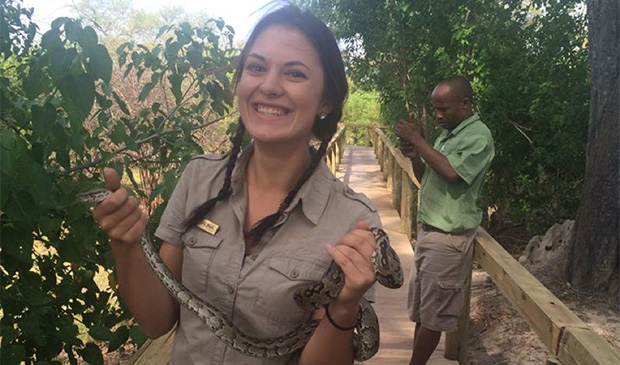
“Wapuka mosadi lekgoa!” – Crazy white lady!
Can you describe your living arrangements?
In our camps we live in houses with a wooden base, canvas walls and mesh windows. And almost every night, the sounds that fill my room as I drift to sleep are lions roaring on the other side of my canvas walls, wandering hyenas breathing deeply on my doorsteps and elephants crunching branches in the garden.
What is a safari experience like at your camp?
A safari to Okavango Delta is an active and intense learning experience with exposure to local culture, animals, birds and nature. Coming here exposes the visitor to the understanding of our existence as a whole and the circle of life where everything serves a purpose. On safari, every turn brings new memories and has the possibility to wake up emotions that may have been asleep for a long time.
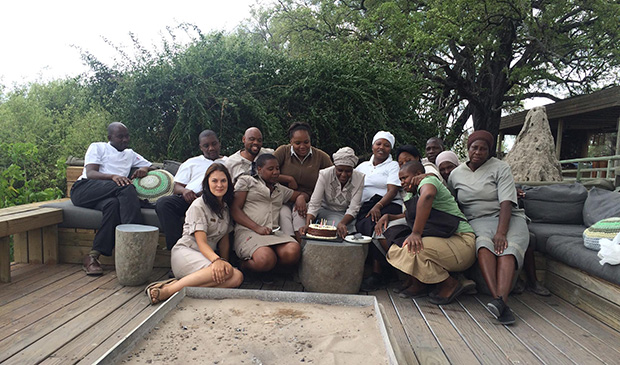
“Dumela, malome!” – Addressing Baeti, the eldest man in camp, by warmly calling him my uncle, and he softly greets me as his niece “Dumela, motlogolo!”
What makes the safari experience with Wilderness Safaris luxurious?
The main difference of a safari in Botswana in comparison to another African country are the rules and regulations that are in place about minimizing the impact on the environment. An important way we do this is by controlling the number of visitors that can access the park which makes way for a unique and exclusive service. Our camps offer everything that is needed for a comfortable stay and our team takes care of all of the details from the moment our guests arrive in the airport. Fresh food is delivered by plane twice a week and turned into a chef’s masterpiece. But above all, it is the carefully selected staff that truly create a luxury experience for each guest.
Can you share with us a typical (if that exists) day on the job?
There is absolutely no such thing as a typical or normal day in the bush as anything can happen in a remote place like this! Our daily goal is to “underpromise and overdeliver” while always trying to make a plan.
“We face different challenges when compared to hotels as our logistics are much more complicated, but this is what we signed up for and starts to become the best part of the job – making impossible things possible!”
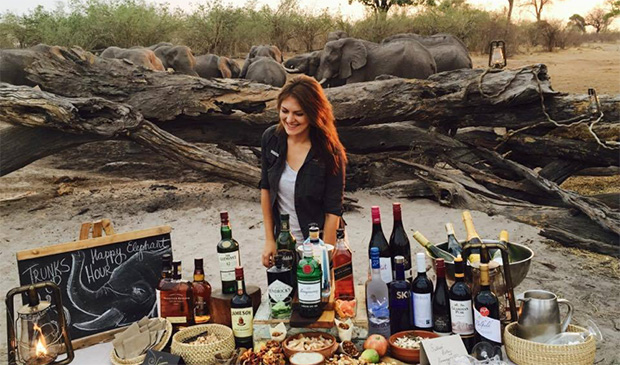
Botswana, Ke a gorato! Botswana, I love you!
What are the main qualities and skills it takes to live isolated in the bush of Botswana?
Flexibility and open-mindedness are key qualities needed to get through the day here but I have picked up quite a few new and unexpected practical skills that have become essential. This includes recording the fuel readings and knowing how to change a tire on the land cruiser, measuring the oil lever in the car and being capable of driving through rough sandy areas and water.
“Another unexpected but important skill I now have is the ability to navigate your way back to the camp at night by using star signs alone.”
What was the most memorable animal viewing experience you had?
It is almost impossible to choose the most memorable as there have been so many but the first that comes to mind is when I saw a pack of wild dogs hunt and kill an impala right on my doorstep. While the dogs were busy having their supper, hyenas could be seen wandering close by and even a sneaky female leopard passed by to steal a bite. I watched all of this from the shading net of my door. It was mind-blowing!
How is hospitality different in Botswana than in Switzerland?
Hospitality standards are similar but the people and scenery are drastically different and there are a special set of challenges.
“The biggest environmental factor that affects my job here are the naughty monkeys and baboons that scavenge our guest rooms for treats or elephants helping themselves to the thatch rooves of our houses or quenching their thirst in the pool! I’m pretty certain this problem does not exist in Switzerland!”
What lesson are you most grateful for from this experience?
This place has helped me understand how truly great life can be and that you are not only your job. What defines you is how much you take out of your own experience.
“In your career if there will be ONE person whom you touched with your heart and made a difference – it is a SUCCESS!”
#Alumni
